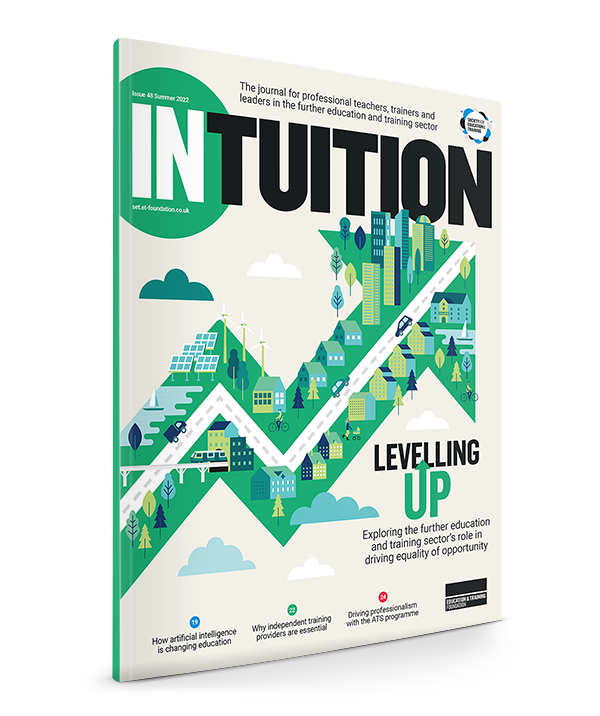inTuition taster: Standing out
Careful curriculum planning and effective teaching methods are key to ensuring learners can gain the skills they need to progress. Ofsted’s Dr Rebecca Clare outlines some examples.

Earlier this year, we published a blog outlining some examples of high-quality curriculum planning and teaching. This reflected on factors that contribute to the positive picture of education we usually see in the further education and skills (FES) sector. We’re delighted to be able to share more of our findings in this article.
I was recently talking to a curriculum lead for ESOL, for instance. He told me how he plans a balanced curriculum that covers the immediate vocabulary that new speakers of English might need, connected with schools, jobs, doctors and shopping. Alongside that, the curriculum deals with fundamental grammatical structures.
His teachers use teaching methods that help learners to focus on the curriculum, with minimal distractions, and provide opportunities to practise in different contexts. The result is that learners learn the English they need to begin to settle in the UK. They can use and understand more complex and appropriate language in more situations over time.
We see this kind of careful curriculum planning, drawing on the building blocks of the subject and ensuring application in a variety of situations, in lots of successful providers. We also see many teachers who skillfully identify and build on learners’ starting points and use teaching methods that focus on and embed the knowledge and skills learned.
Consider the carpentry and joinery teacher, who makes sure that learners understand the fundamentals of timber science and how to work with different kinds of wood, before supporting them to select the right wood and use the best techniques for particular tasks. The first kind of content is what Professor Chris Winch describes as propositional knowledge, or ‘knowledge that’.
In some subjects, such as software development, conditional knowledge arguably forms the bulk of the curriculum
We often see this kind of curriculum content taught very effectively through clear exposition. This can help learners to grasp the key fundamental knowledge accurately, reducing any opportunity for gaps in understanding. Then there is know-how, or skills: in this case, knowing how to work with different kinds of wood.
We might describe the third kind of knowledge/skill (knowing when to use particular wood and particular techniques for a particular job) as a kind of conditional knowledge, or ‘knowledge-when’. Often, in vocational subjects, it’s the development of really effective conditional knowledge, informed by secure and accurate propositional knowledge and know-how, that tells a teacher or employer that a learner or apprentice is developing expertise.
Particular subjects might also have their own subject-specific means of supporting the development of conditional knowledge. In some subjects, such as software development, conditional knowledge arguably forms the bulk of the curriculum. Effective teaching of that subject is therefore likely to include plentiful opportunities to practise coding and testing in a wide range of increasingly complex situations.
Effective teaching methods, then, often follow the selection of curriculum content. We don’t expect teachers to be familiar with epistemology. But we do know that teachers should think deeply about i) the fundamental building blocks and wider application of their subject, ii) how to sequence content to help learners make sense of the subject and develop expertise over time, and iii) how to teach so that learners focus on and remember what they are learning.
It’s not as easy as it sounds, we know! That’s why inspectors are also interested in supportive management practices, such as provision of high-quality professional development. We will ask about the ways in which teachers are supported to do the best job they can. We want to know whether professional development supports teachers’ understanding of their subject, how to make it accessible to learners and how to teach and assess it.
We’re very interested in hearing from teachers who are engaged in these debates. Join the conversation at CurriculumUnit@ofsted.gov.uk
Dr Rebecca Clare is senior HMI curriculum, further education and skills policy at Ofsted
Image credit | Shutterstock

Find out more about inTuition
inTuition is SET’s quarterly professional magazine supporting members' access to CPD resources and the latest sector and research news. It combines sector news with educational research and exciting practical developments and ideas in education and training.
Find out more


